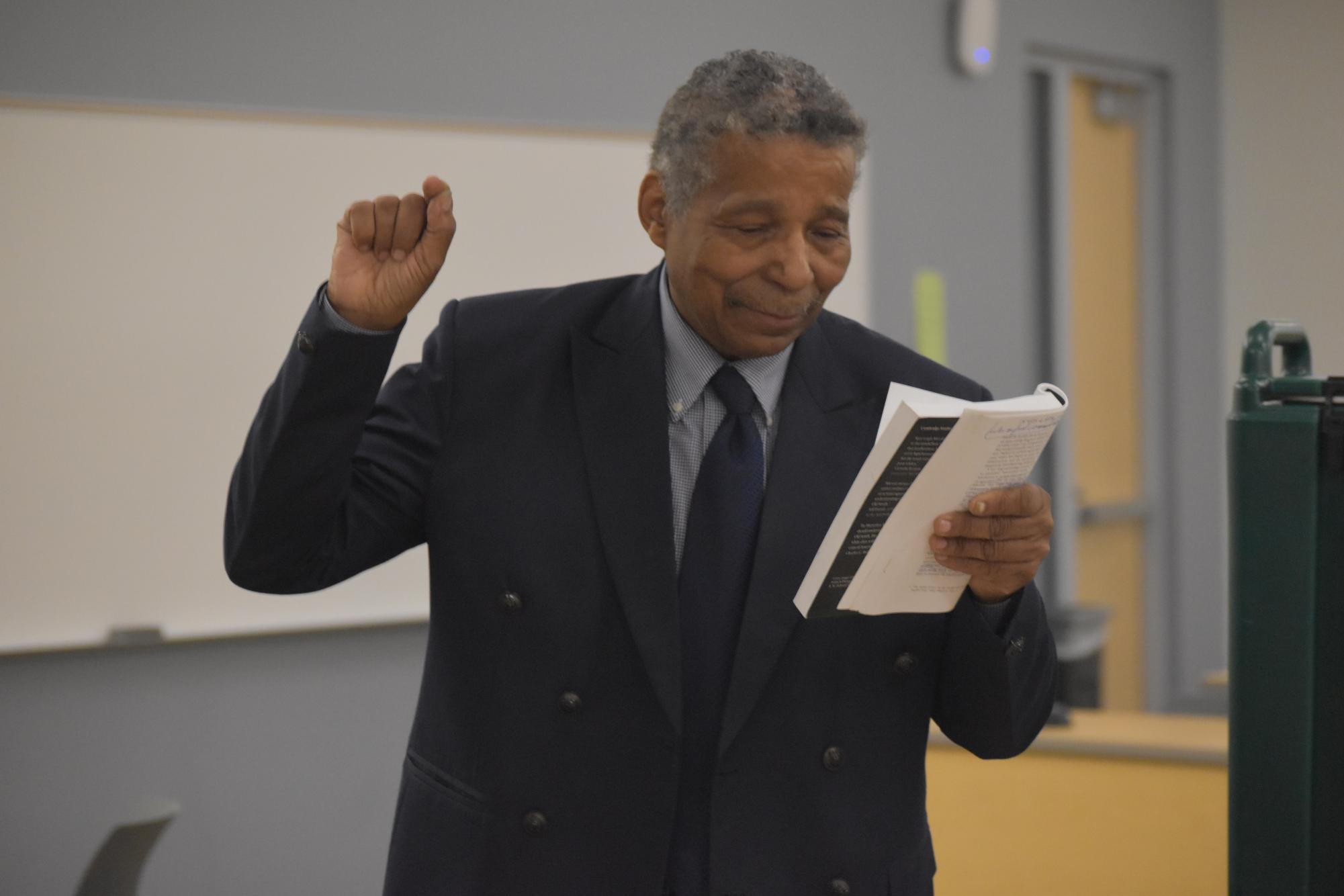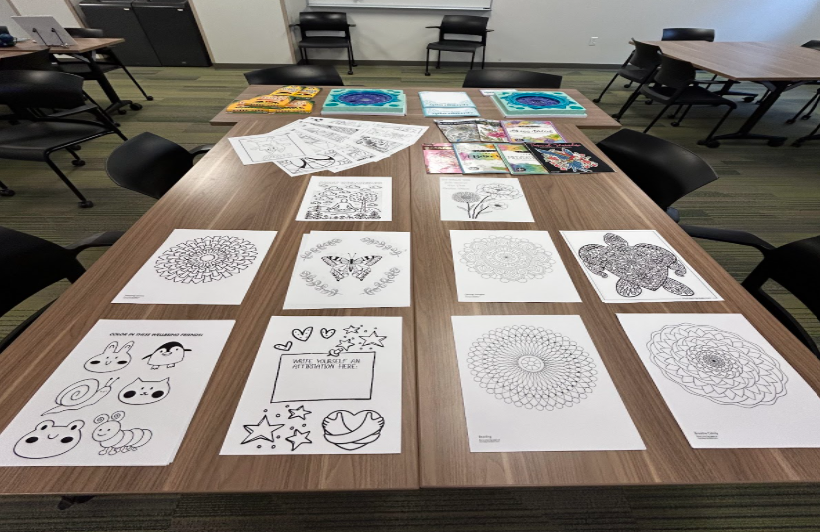Walking into a Jamrich classroom on Tuesday evening, people saw Department Head and Professor of Political Science Dr. Carter Wilson standing up front with two questions written on the whiteboard behind him: “Why do we have Black History Month?” and “What is critical theory and critical race theory?”
That night, students and professors alike gathered to hear Wilson draw from his knowledge regarding these topics. ASNMU and the Black Student Union collaborated to host this event.
“The important thing is to be able to look at and understand the dynamics of oppression, and to come up with public policy solutions to ameliorate oppression,” Wilson said.
Aside from his doctorate and department head position, Wilson has also written a book entitled, “Racism from Slavery to Advanced Capitalism,” and published a peer review called, “Blind to the Dignity of the Other.”
The speech began with a discussion on Carter G. Woodson, who started Black History Week, which would later become Black History Month. According to Wilson, Woodson created the tradition to not only celebrate black culture but also to “counteract lies about Africa and African Americans.” He then mentioned a number of other historical figures who he says were instrumental in these areas, such as J. A. Rogers and Stephen Gould.
Wilson then explained critical theory before transitioning into a discussion of critical race theory (CRT). On a handout, Wilson defined CRT as “a serious and scholarly body of legal theory grounded in critical legal theory and progressive legal realism, dedicated to promoting civil rights and committed to ameliorating racial oppression and other forms of oppression.” Wilson also provided many books, articles and other sources cited on the theory and its studies.
Another major topic in Wilson’s speech was lies and misinformation spread about CRT. Some believe, for example, that CRT is a threat to their children and society.
“Critical race theory has been found in law schools because it’s a body of legal scholarship,” Wilson said. “It will be nice if we can have more discussions on what CRT is so that people are not poisoned by the anti-CRT propaganda that’s coming out, and that they know what it is.”
Many audience members who attended Wilson’s speech felt much more widely informed about CRT afterwards. Following the hour-long speech, Wilson allowed students to linger and ask questions.
“I think it’s important to understand at its most basic level that institutional racism exists, and the ways we can correct it,” said Junior Nick Atkin, who has Wilson as a professor.
Atkin says he attended the event to support Wilson and to review his previous knowledge on CRT, as well as learn new facts about Black History Month.
“I think it’s important to learn about the importance of Black History Month and the importance of maintaining CRT in law schools, and not let the people who spread lies about it get rid of it,” Atkin said. “[By learning about CRT], I’ll be more informed about the ways that oppression has occurred, not just here, but in other places in the world.”








